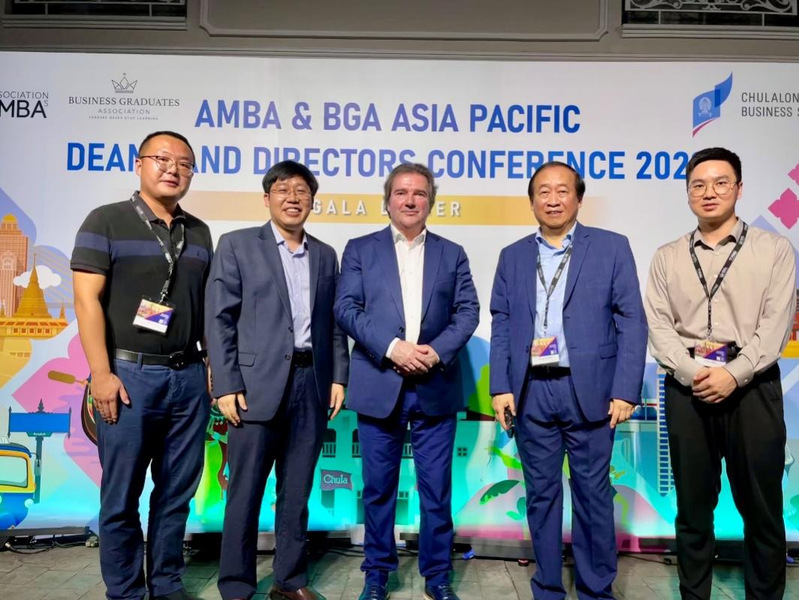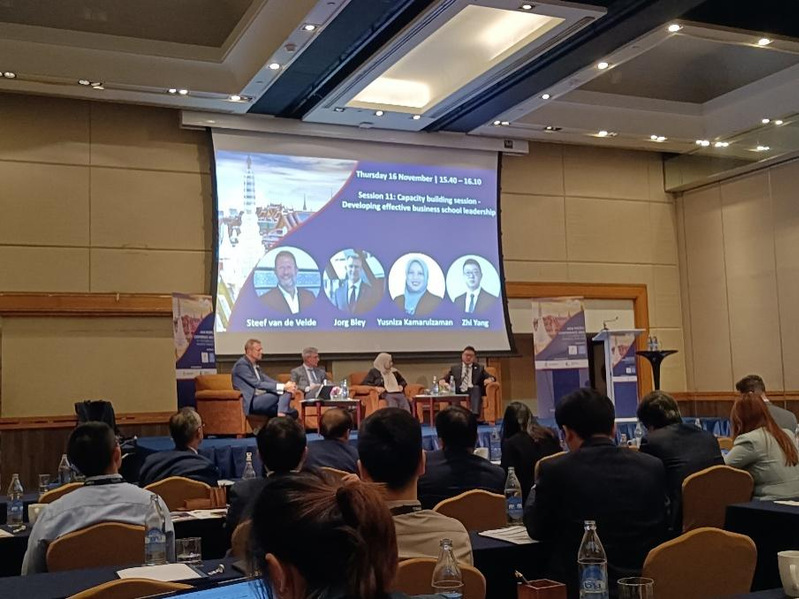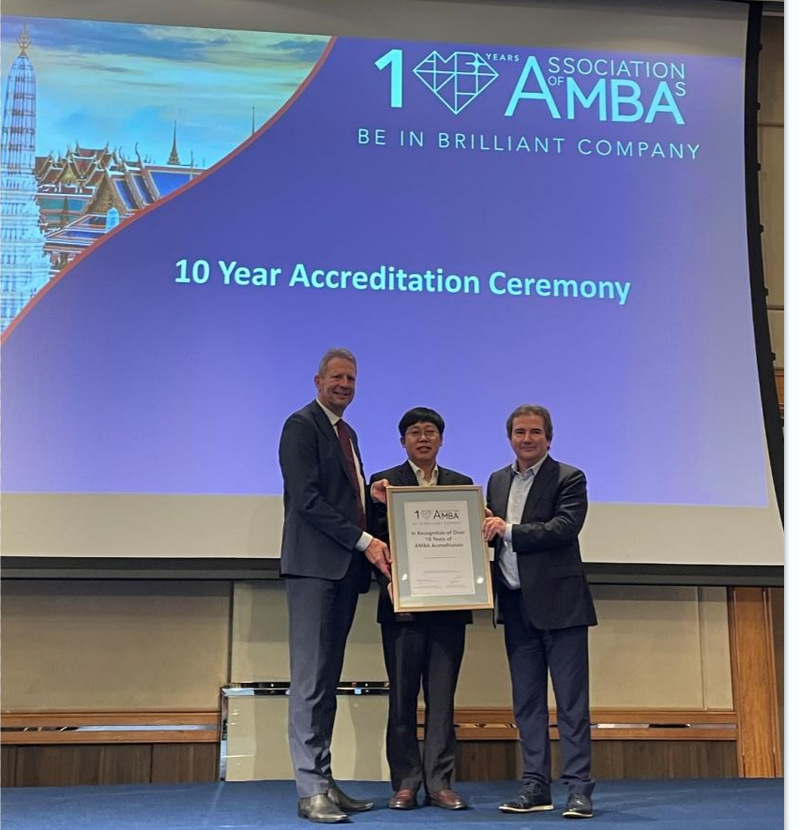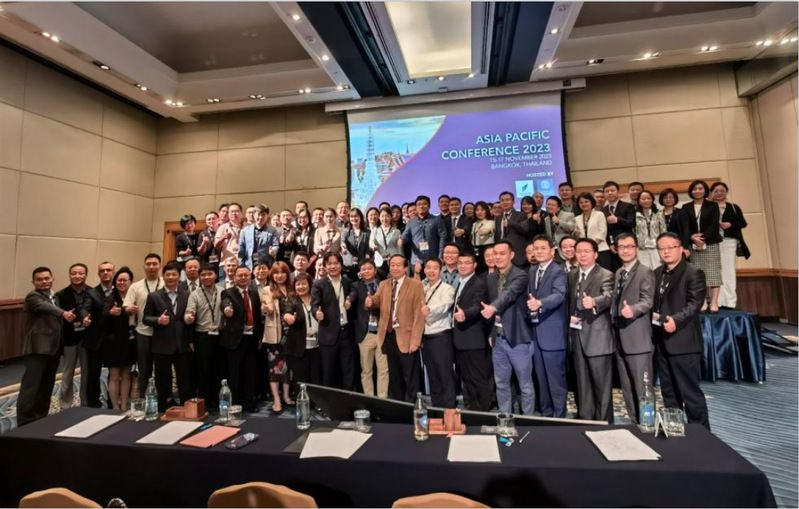On November 15th to 17th, 2023, AMBA&BGA Asia Pacific Deans and Directors Conference was held in Bangkok, Thailand, which was attended by deans of more than 60 business schools, directors of MBA centers and more than a hundred delegates from Asia-Pacific region, to discuss the important matters affecting the development of business schools in Asia-Pacific region in the next five years. Prof. Wen Hao, Associate Dean of School of Business Administration (SBA) and Associate Director of MBA Education Center, Associate Prof. Mao Jianghua, Dean of the Department of Business Administration, and Mr. Sun Kaifan, Director of the School Administrative Office, went to Thailand to participate in this conference.

The three-day Conference featured 16 sub-forums focusing on the following six themes: Innovative Practices in Business Schools based on Digitalization and Artificial Intelligence, Development of Lifelong Learning Programs and Career Development of Alumni, Sustainable Entrepreneurship and Leadership Development - The Silk Road Network, Industrial Partnerships and Capacity Building of Business School Ecosystems, Designing the Golden Curriculum: Theoretical Principles and Practical Skills, and Responsible Governance and Sustainable Development of Business Curricula.

Several deans and directors of business schools in the Asia-Pacific region shared their forward-looking practices and typical experiences in MBA and undergraduate education. Wilert Puriwat, Dean of Chulalongkorn Business School, introduced his idea of transforming business school to real business in the school, through the introduction of real business in the school in business schools. Wilert Puriwat, Dean of Chulalongkorn Business School, introduced his idea of transforming business school to real business in the school by providing students with the opportunity to run real businesses through real entrepreneurship (e.g., business school café, supermarket, and cultural and creative store), business consulting, and self-employment programs in the business school, allowing students to put their theoretical knowledge and skills into practice, and transforming the role of teachers from business educators to business facilitators. The role of the teacher is changed from a business educator to a business facilitator. Pipop Udorn, Vice President of Thammasat University (Thailand), shared the concept and practice of action learning in community service at the university's business school. Each year, faculty members from the Faculty of Business at Thammasat lead groups of 120 students to solve real-world problems faced by rural businesses such as product design, brand management, pricing, and marketing communications. The model allows students to develop business skills through integrated experiential learning in teamwork and also effectively supports the development of traders and businesses in rural areas. In addition, deans/directors of business schools from the University of Canterbury and Nagoya University of Commerce in Japan, as well as business representatives from companies such as Toyota and Accredify, discussed the future of business schools in the areas of internationalization, experiential learning, multidisciplinarity and multidisciplinarity. internationalization, experiential learning, multidisciplinarity and digitization.


In addition, the representatives of our school also had face-to-face communication with the accreditation supervisors of AMBA&BGA, international experts and business school counterparts to understand the focuses and new trends of MBA programs and global business school development, as well as the latest standards of AMBA and BGA accreditation, which drew abundant experience for next year's joint re-accreditation of AMBA&BGA, and brought a very important impetus to the combination of the school's business discipline and new technology, the internationalized development of the business school, as well as the international exchanges and cooperation.

